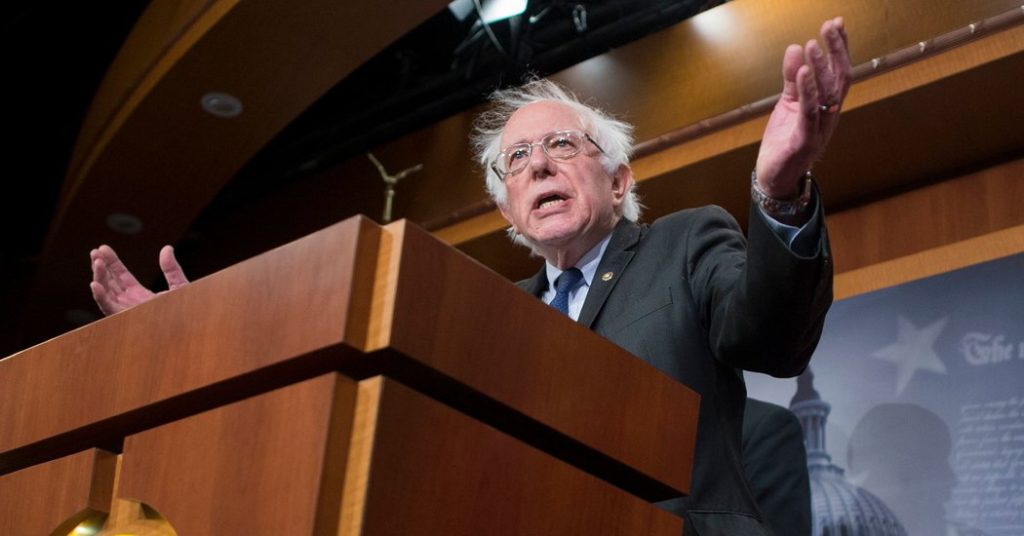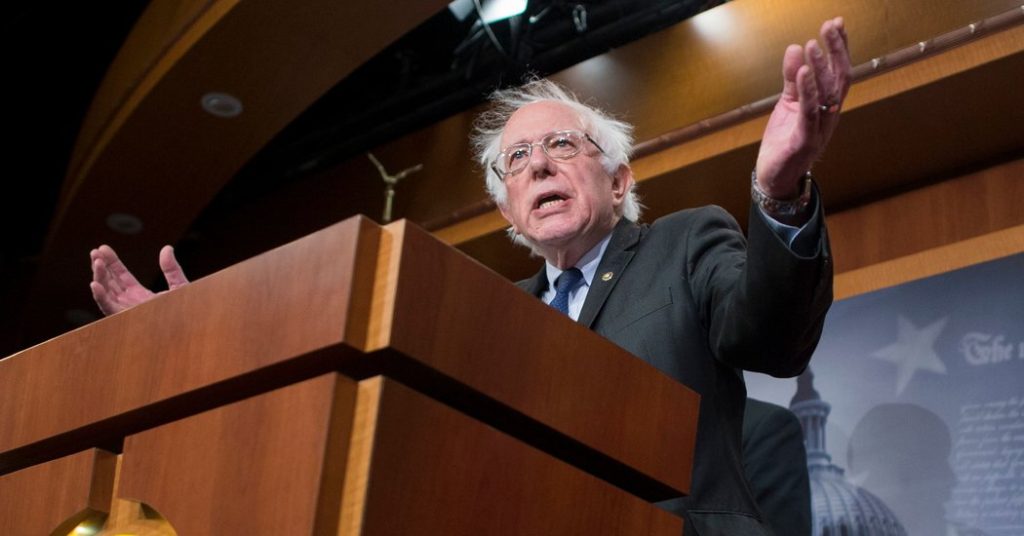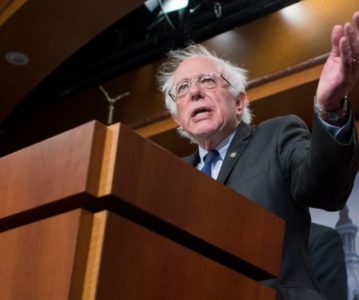
Most of the pieces encouraging a DSA endorsement of Bernie Sanders in 2020 are quick to admit that his politics are not socialist politics. We want to abolish capitalism, to do that we’ll need a revolution, and clearly Bernie doesn’t support either of those things. Many of his policy positions are far better than those which any other liberal politician has on offer, but at the root of things Bernie’s policies are about getting friendlier managers in charge of capitalism, not abolishing the system itself.
Nevertheless, the argument goes, the DSA should endorse Bernie. Perhaps the argument is that although Bernie’s policies are obviously not socialist, they still represent a vast improvement for working people and that this is worth supporting its own right. Others see a Sanders campaign as the path to further membership growth, noting the relationship between the 2016 primary and the organization’s explosion in rolls. The most sophisticated arguments acknowledge that, while Sanders’ politics fall far short of the social revolution we need, his campaign and his foregrounding of class politics will develop the class consciousness of the proletariat in the United States, putting us one step closer to being able to build a mass socialist party.
Any of these arguments about the historical importance of the Sanders campaign may be correct, but none of them are a good reason for endorsement.
Don’t get me wrong—I hope that Bernie will be elected next year. I will register, briefly, as a Democrat, just to vote for him in the primary. But individual voting choices are different from organizational choices. We’re a socialist organization. We shouldn’t be endorsing somebody who is not a socialist.
To begin with, we shouldn’t endorse anybody just on the basis of harm reduction. Endorsing the viable candidate who would be best for the US working class would have led us to endorse Hillary Clinton in 2016. Nor should we be making our endorsement decisions merely on the basis of the development of class consciousness. If we take this idea to its logical conclusion, we’d be rooting for any number of politically polarizing but decidedly awful events that move masses of people to question the foundations of our political system. The development of class consciousness is a beautiful thing, but it cannot be an endorsement criterion on its own.
By the same token, we shouldn’t endorse Bernie simply because our alignment with his campaign would lead to even further membership growth.
Consider the best-case scenario: Bernie wins. A man we endorsed, a man who calls himself a “democratic socialist,” a man who elicits a familiar fondness with his iconic polemics against “the millionaires and the billionaires,” is now the President of the United States. He is now our most visible spokesperson.
DSA is formally a democratic organization. There is no political barrier to entry. You pay $27 and you can vote. And now our chief recruiter, the man who tells the world what we’re about, the man who determines the political character of the influx we hope for, is not a socialist, is not under our discipline, and seems actively disinterested in DSA. He voted for SESTA/FOSTA, calls open borders a “Koch Brothers proposal,” and has publicly argued against BDS, just to name a few of his chauvinistic tendencies, with his stance on BDS directly running against a policy which was supported by our organization at its last convention. He is running in the Democratic primary, caucuses with Democrats in Congress, and is intentionally left unchallenged by the Democratic establishment in his home state.
Those who argue in favor of a Sanders endorsement propose that we publicly and explicitly tie our political character to a liberal politician in the interest of short-term gain. This is liberalism at worst, and opportunism at best.
Spring Caucus/The Call, the most organized proponent of this strategy, claim to repudiate the Harringtonism of the old DSA. But their approach, constantly pushing just at the leftmost boundary of current US electoral politics, does not differ in any material sense from Harrington’s “left wing of the possible.” They recognize revolution as an eventual historical necessity but believe the road there must necessarily go through a social-democratic party. In seeing Sanders as the next step toward the construction of such a party, they hope to reproduce the exact sort of party that has historically served to quash revolutionary movements, not birth them.
Eugene Debs argued against this sort of opportunism over 100 years ago in an essay entitled “Danger Ahead”. Debs warns against the temptation to dilute socialist politics in the interest of near-term electoral growth:
To my mind the working class character and the revolutionary integrity of the Socialist Party are of first importance. All the votes of the people would do us no good if our party ceased to be a revolutionary party, or only incidentally so, while yielding more and more to the pressure to modify the principles and program of the party for the sake of swelling the vote and hastening the day of its expected triumph. […]
These votes do not express socialism and in the next ensuing election are quite as apt to be turned against us, and it is better that they be not cast for the Socialist Party, registering a degree of progress the party is not entitled to and indicating a political position the party is unable to sustain.
We should be wary of the danger ahead in a Bernie 2020 endorsement. Bernie’s politics are not socialist politics; his campaign will build class consciousness whether we endorse him or not; and indeed, his campaign will build class consciousness through the activity of many DSA members, who are likely to campaign anyway, just without an official DSA imprimatur.
We have goals that go beyond mere Nordic social imperialism: we should aim for DSA to become one of the founding elements of a mass revolutionary party in the United States.
As socialists, we must take revolution as our mission. We understand that this will require the simultaneous and collective action of tens of millions of people who currently hold no revolutionary consciousness at all, and as such it may be a long way off. But revolution remains our guiding principle. We must build the institutions that are capable of introducing revolutionary socialist politics to our fellow workers, of bringing broader and broader layers of our fellow workers into militant class struggle, and eventually of serving as the infrastructure of our collective liberation.
An endorsement of Bernie Sanders would do just the opposite, serving to drag our organization’s politics rightward at a time when they are rapidly maturing. It may help to put us in a position of greater class leadership; it would also leave us pointing in precisely the wrong direction.
I will be running to attend the 2019 DSA convention as a voting delegate on behalf of Central Jersey DSA. If elected by my chapter, I’ll vote against a Sanders endorsement.




